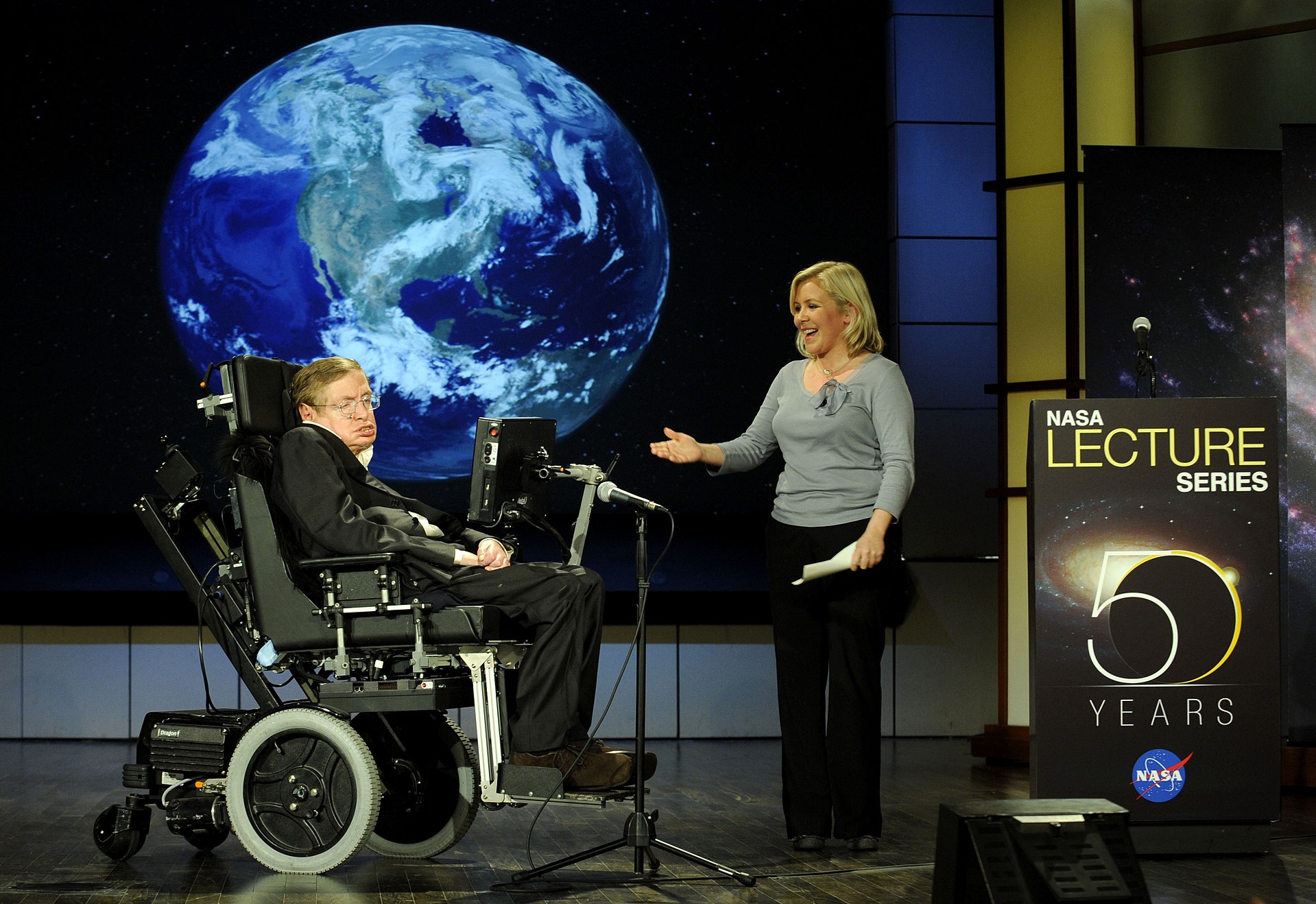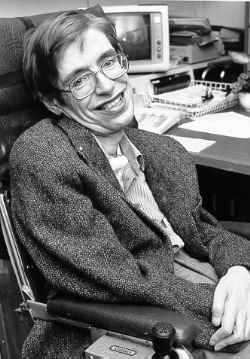
The Royal Astronomical Society offers its condolences to the family of Professor Stephen Hawking CH CBE FRS FRSA, whose death was announced today.
Over six decades, Professor Hawking carried out ground-breaking work in cosmology, seeking to understand the nature of black holes, and the origin and evolution of the universe as a whole. He conveyed these ideas to a wide audience through books, broadcasting and public engagement. At the same time Hawking suffered from amyotrophic lateral sclerosis (ALS), which saw him confined to a wheelchair for much of his life, and he famously communicated through an electronic speech generation device.
Hawking received many awards over his lifetime. The Royal Astronomical Society awarded him the Eddington Medal in 1975 and its Gold Medal in 1985. He was one of the youngest scientists to be elected a Fellow of the Royal Society (FRS) in 1974, and was the Lucasian Professor of Mathematics at the University of Cambridge between 1979 and 2009.
Professor John Zarnecki, the President of the Royal Astronomical Society, commented: “Few scientists will ever capture the imagination of the public in the way that Stephen Hawking did. He will be remembered for his extraordinary scientific vision, his huge profile, and the way he transcended his physical disabilities. With his death, we have lost a huge figure in astrophysics and cosmology, and one who will be remembered far into the future.”
Phil Diamond, Executive Director of the Royal Astronomical Society added: “Stephen Hawking was a cult figure to those of us who were geeks studying physics in secondary school in the 70s. And he was funny too. I remember a BBC Horizon documentary filming a seminar of Stephen with his graduate students. My friend, Chris Hull, then his PhD student, now a Professor of Theoretical Physics himself, held up a toilet roll in order to represent a particularly simplified model of the universe. Hawking's voice could be heard telling him that it was the wrong way up.
‘Then, in the 80s, ‘A Brief History of Time' came out. Suddenly our best kept secret was shared with the world. What a wonderful phenomenon that was, and a huge benefit to physics and cosmology. We had our own superstar, the public really 'got' him, and he started the cultural revolution allowing ‘clever’ to be cool.
What a brave, brilliant, remarkable man. We were lucky to have him.”
Media contact
Royal Astronomical Society
Tel: +44 (0)20 7292 3979
Mob: +44 (0)7802 877699
rmassey@ras.ac.uk
Image and caption

Professor Stephen Hawking at NASA.
Credit: NASA
Notes for editors
The Royal Astronomical Society (RAS), founded in 1820, encourages and promotes the study of astronomy, solar-system science, geophysics and closely related branches of science. The RAS organizes scientific meetings, publishes international research and review journals, recognizes outstanding achievements by the award of medals and prizes, maintains an extensive library, supports education through grants and outreach activities and represents UK astronomy nationally and internationally. Its more than 4,000 members (Fellows), a third based overseas, include scientific researchers in universities, observatories and laboratories as well as historians of astronomy and others.
The RAS accepts papers for its journals based on the principle of peer review, in which fellow experts on the editorial boards accept the paper as worth considering. The Society issues press releases based on a similar principle, but the organisations and scientists concerned have overall responsibility for their content.
Follow the RAS on Twitter, Facebook and Instagram

